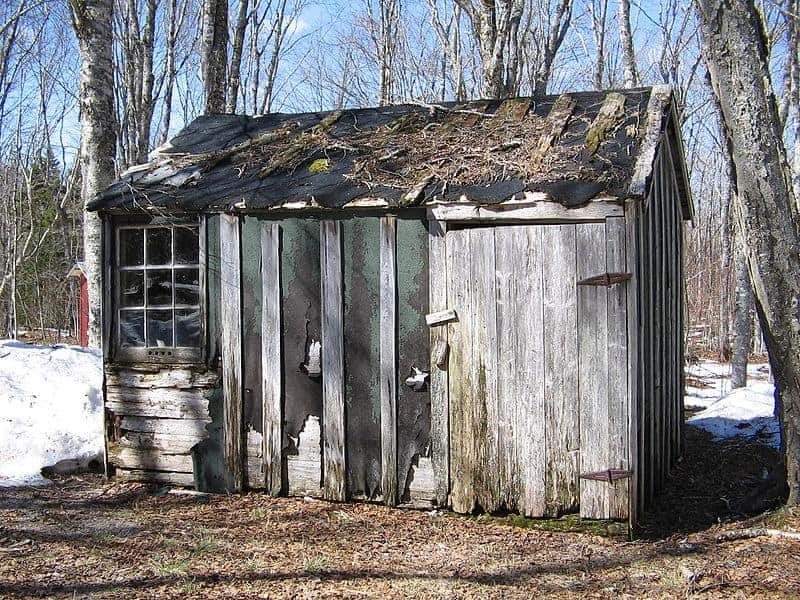
My Landlord Is Selling My Building, How Pessimistic Should I Be?
My Landlord Is Selling My Building, How Pessimistic Should I Be?
I’ve lived for three years in the in-law apartment of a residential, two-family home built in 1900 (the landlords live in the main house upstairs; I live in the in-law/garden apt on the first floor). It’s in Bernal Heights.
My landlords, with whom I have a very good relationship, are approaching their 80s, and just informed me last week (via a handwritten note on a piece of cardboard) that they are putting the house on the market.
I am 35, I have a dog (who I just adopted two months ago), and my rent is $1300, and hasn’t gone up since I moved there. As I understand it, any new owner would just slip in and become my new landlord…unless they do an Owner Move-In, in which case they would have to give me a bunch of money and 60 days to vacate and physically have a family member move in. Is that about right?
I’m a born pessimist, and I realize this is subjective, but does it happen often that a tenant in a situation like mine is forced out? Is it at least possible that a potential new owner would want the already-installed tenant and their monthly check? I’m trying not to freak out, but I just know that finding a similar place in SF (I love both my apt and Bernal very much) is basically impossible at this point, as would be buying a home. I don’t want to have to leave.
You claim to be a born pessimist. Perhaps you’re not being pessimistic enough. People who buy houses with in-law units rarely want an “already-installed tenant and their monthly check.” Why? Because your monthly rent will barely cover the new property taxes based upon the insane price a new owner paid for the house.
In other words, even if a new owner wants to rent his in-law unit, he doesn’t want to rent it to you. You’re not paying enough rent. San Francisco rents increased from 15% to 25% citywide last year according to an October article in the SF Examiner.
“It’s been an exciting, epic year for the rental market in San Francisco,” said Laura Gray, who handles rentals for Paragon Real Estate.
She attributes the increase in younger single tenants to the the aggressive hiring of tech firms such as Google, Apple and Twitter.
With demand for smaller rentals so high, many younger tenants are choosing to double or triple up in a larger three-bedroom flat. With singles prepared to pay anywhere from $1500 to 1800 per month for a shared rental, larger flats in San Francisco are easily renting out for $5000 to 6000 per month.
Hey, it’s been an exciting and epic year and San Francisco taxpayers (you) have subsidized Twitter-Motherfuckers so that their employees can pay $1,800.00 per month for a room in a three-bedroom flat. That same flat rented for about $1,800.00 total a couple of years ago. Based on my many conversations with tenants looking for apartments, the trend continues.
The first question you must ask: “Is my unit illegal?” In my experience most in-law units, like the one you describe, are illegal. I have written much on this subject over the years. I outlined the factors to make that determination in “SF Appeal Tenant Troubles: Can I Be Evicted Just Because My Apartment’s An Illegal Unit?”
You need to understand this because the present owners or a new owner can “remove the unit from the rental market” because it is illegal pursuant to Rent Ordinance section 37.9(a)(10).
All an owner has to do is inform you of his intent to demolish and get an over-the-counter building permit to remove the unit. Then the owner can serve you a 60-Day Notice to vacate with the permit attached and pay you the requisite relocation payment to move. The relocation payment this year beginning in March 2013 is $5,153.00. I don’t know about you, but I don’t consider that a bunch of money when it will likely cover about three or four months of your new Twitter-based rent.
To add insult to injury, I’ve seen many instances when a landlord will reinstall a kitchen in an illegal unit and re-rent it. There is absolutely no penalty for this unless the new tenant finds out and reports the unit to DBI and sues for fraud.
Epic. Happy fucking New Year! How’s that for pessimism?




